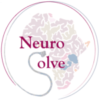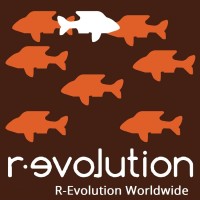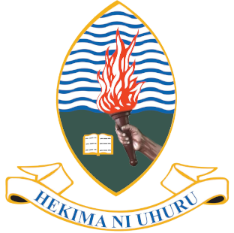NeuroSolve wants to provide a practical use case/example to demonstrate how research results can be implemented into clinical practice through robust evidence-based science and a well-developed implementation strategy.
The NeuroSolve consortium will employ a multidimensional approach including clinical & implementation research behavioural, societal and economic studies, stakeholder engagement, capacity building, dissemination, to target specifically the previously highlighted challenges and gaps in Neurocysticercosis management as described by the WHO.carrera obstaculos hinchables
The efforts of the consortium are structured in 8 work packages (WP) that will be implemented by complementary and highly experienced partners, who are all equipped to perform the tasks assigned to this group which has longstanding collaboration in research. The work will be conducted during a 4-years period.
The efforts of the consortium can be structured along four main pillars:
WP 1 – Ethics requirements
Lead beneficiary: R-Evolution Worldwide
This WP sets out the “ethics requirements” definded by the European Commision that the project must comply with.
WP 3 – Effectiveness and cost-effectiveness studies on combined treatment
Lead beneficiary: University of Dar es Salaam
This WP is focused on the validation of the combined treatment with Albendazole, Praziquantel and corticosteroids compared to golden standard treatment. A robust data management system will be set up and could be used in future clinical studies. Health economics assessment will be conducted to evaluate the economic feasibility, cost-analysis, cost-effectiveness of a combination treatment for the cost implications of the proposed treatment on the Tanzanian and Zambian healthcare systems.
WP5 – Implementation of the health technologies
Lead beneficiary: Universiteit Gent
This WP aims to investigate barriers, facilitators and requirements for the project health technologies and control tools and design and develop an implementation strategy and operational and evaluation tools, addressing the identified barriers in the domains of Intervention. The implementation strategy for the health technologies will be rolled out and followed up, evaluated during at least 12 months. The health technologies will be implemented and tested following a small scale in 7 clinical sites. This WP will ensure the success of the improvement of less-than-best practices by identifying the barriers and facilitators for best practices though specific formative evaluation. The WP5 activities will allow the development of guidelines for the continuation of the implementation and further scaling up in the area, focusing on the longer term, after the funding period ends and aims establishing/consolidating the supportive structure and organization (in staff, infrastructure, procedures etc). The elaboration of a Stewardship Plans and a Global Access Plan will also ensure the optimal use of the intervention analysed and overcome economic barriers.
WP7 – Communication and dissemination and advocacy
Lead beneficiary: R-Evolution Worldwide
This WP will ensure maximum impact during and after the project emphasizing the strengthening of the existing links between the consortium partners, institutions and stakeholders. The development of dissemination, exploitation and advocacy plan will ensure to raise awareness of the project and its objectives. Communication channels and tools will be developed and tailored on the different features and needs of the target audience. Furthermore, regular advocacy campaigns will engage local, regional and global stakeholders and decisions/policies makers to share the project’s progress and results and pave the way for translating project outcome into healthcare policy.
WP2 – Capacity Building
Lead beneficiary: Sokoine University of Agriculture
This WP will ensure the capacity building of investigators, clinicians, and students through training programme for clinical and implementation research studies conduction, in Tanzania and Zambia (compliant with GCP and GCLP). Local laboratory capacities will be increased with short-term training of laboratory technicians and upgrading of physical infrastructure. Skills and competencies of frontline and second-line healthcare workers will be built to support the recruitment of trial participants and applying the health technologies and guidelines investigated/developed in this project.
WP4 – Assess the practical and medical usability of serological testing for NCC
Lead beneficiary: University of Zambia
A systematic review is important to identify and evaluate the currently available serological diagnostic tools for the diagnosis of NCC, assessing their performance (for the different types of NCC), ease of use (in terms of time to result, number of steps, equipment needs, storage requirements, training needs, expertise level needed, etc.), cost and availability (in house, commercial). This WP activities are important in order to assess the impact/add value of using serological test on patient management and health outcomes and to execute a cost-effectiveness study to ascertain impact of serological testing for NCC diagnosis. Results from this WP and from WP5 will be of particular importance in providing guidance for an update of the Target Product Profiles for Taenia solium NCC as they provide information on performance, but also on the goals, setting/context of use, and technical aspects which are crucial for implementation.
WP6 – Pave the way of for the translation of research outcome into updated policy
Lead beneficiary: University of Dar es Salaam
This WP will ensure the involvement and the interaction with local, regional and international health agencies and relevant stakeholders. Building on these regular opportunities, a roadmap to policy change will be developed and agreed in order to get it ready in adopting the research outcome once will be available. Updates to the national and WHO NCC management guidelines for resource poor areas will be proposed to the National health authorities and WHO, designing an implementation strategy to enhance adoption of the WHO recommended guidelines for NCC treatment based on barriers and facilitators identified in WP3 and WP5.
WP8 – Project management
Lead beneficiary: R-Evolution Worldwide
The WP8 will ensure productive project execution and realization of main objective in time, according to EDCTP/EC regulations. The coordinating team will guarantee the appropriate execution of the project activities through specific and complementary skills of the consortium partners. The development of a Data Management Plan will ensure the respect of the governance rules and the project timeline. Other, the Monitoring and Evaluation Plan will demonstrate how activities will lead to the desired outcomes and impacts, allowing to overcome any predictable hurdles.





